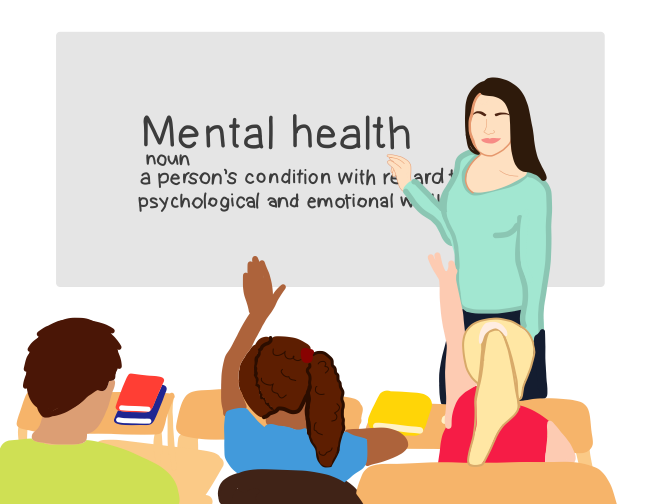Thinking elementally
Increased intervention and mental health awareness vital in primary education
March 14, 2019
Mental health plays an integral part in every student’s academic career, directly affecting their ability to conduct themselves in everyday situations, classroom environments, and professional settings. A student’s success may be in jeopardy if their mental health inhibits their focus and their expectations in the classrooms.
The problem with mental health in America’s education system is that we do not do enough to curb and address a student’s mental health during primary education, which is when students learn how to appropriately behave and apply themselves in group settings. Elementary school teachers have a natural propensity to be a constructive force in a student’s life and to address and prevent students’ mental health issues before they have a lasting impact on a student’s academic career.
Research by Harvard University’s Center on the Developing Child suggests that as children, the rapidly developing nature of the brain heightens during trauma, incurring stress and fear-related hormones. In periods of extended traumatic exposure, the brain adjusts to the heightened stress state and normalizes the stress and fear, threatening the development of a healthy psyche as the child ages. Elementary school teachers interact closely enough to form secure relationships with children and should help to address the roots of what would later become mental health issues, such as bullying, cheating, and aggression in social settings.
A study in the Oxford Journal of Pediatric Psychology contends that exposure to potential traumatic events (PTEs), stimuli ranging from car accidents to bee stings, in early childhood can precipitate depressive symptoms in developed children by sensitizing the child to stress, decreasing a child’s tolerance and lowering the stress threshold, making the child more susceptible to anxiety, depression, and other mental health issues. This may later manifest itself as poor study habits and procrastination, impulsive temperament or deviant social behavior. While a large body of research maintains that mental illnesses are genetic expressions, the way a child learns to act and to behave in group settings can deeply affect their ability to succeed academically.
Although young children might not have the vocabulary to articulate or express the complexities of their mental states, children jump internalize false assumptions when they do not have enough information to make informed conclusions. As a Psychology Today article suggests, talking to children about mental health, as well the traumas they may experience, can help to clear up misconceptions about their intrapersonal state, including the ways that children express fear, anxiety and depression. By excluding young students from these talks, children are left to deal with complex social issues by themselves, which can affect their emotional independence and their self esteem. The solution to mental health issues in high school and in college, when the consequences are more sustaining and severe, is to address mental health issues when the human brain is more flexible and can learn to cope with stress at an early age. Currently, talks about mental wellness in primary education are far and few between. If we introduce the vocabulary of mental health to young students and we incorporate elementary school teachers in those talks, we can mitigate the latent dysfunctions of mental illness during early education.















